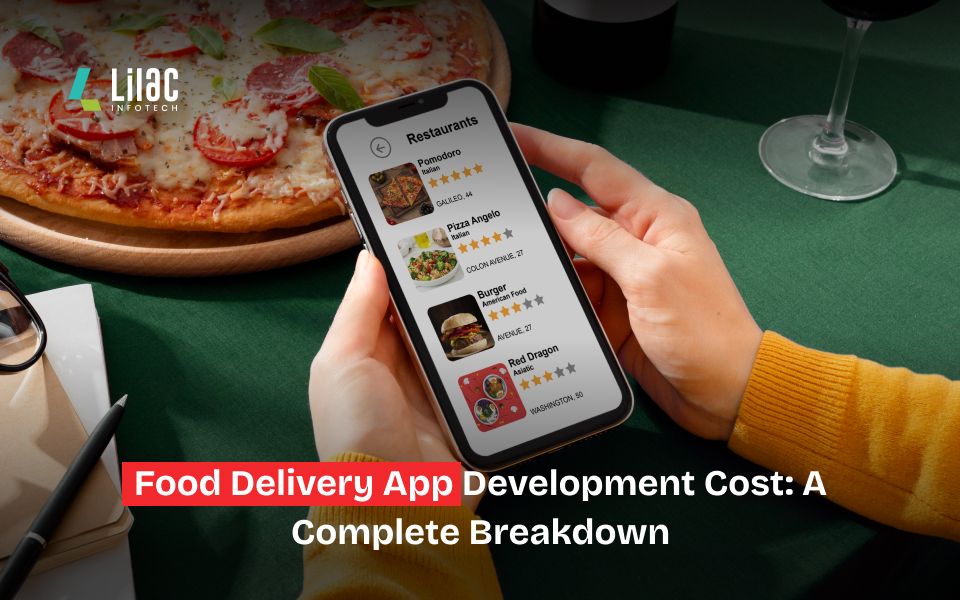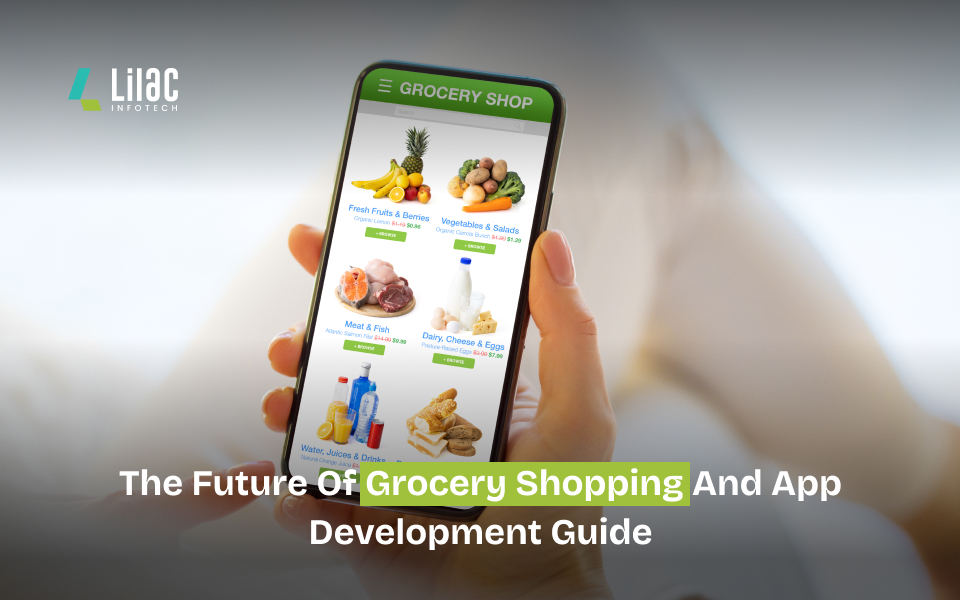
Food ordering apps are no longer optional for restaurants — they’ve become essential tools in the modern food industry. The main driving force behind this shift is customer convenience. Today, every industry operates on the principle that convenience leads to customer satisfaction. In the food sector, food ordering apps play a crucial role in delivering that convenience effectively.
In this blog, we’ll explore the food delivery app development cost, the rise of food ordering apps, and the key aspects to consider before you create a food ordering app for your business.
The Rise of Food Ordering Apps
In today’s digital age, success in the food industry depends not only on great taste but also on customer convenience. A food delivery app helps you achieve transparency and efficiency — from placing orders and making payments to tracking deliveries in real time.
Simply put, food ordering apps are no longer a luxury; they’re a lifestyle essential that merges technology, comfort, and taste into one smart solution.
Benefits of Food Ordering Apps
Food delivery application development offers benefits to both customers and restaurant owners. It simplifies operations, enhances customer engagement, and helps businesses grow efficiently. Below are some major advantages:

1. Convenience for Customers
Customers can order food anytime, anywhere — no waiting lines or phone calls required. It’s a perfect solution for busy lifestyles.
2. Time-Saving
With just a few taps, users can browse menus, compare prices, and place orders quickly. Their favorite meals arrive at their doorstep without hassle.
3. Multiple Payment Options
Most on-demand food delivery apps support secure payments via UPI, debit/credit cards, digital wallets, and even cash on delivery — offering flexibility and trust.
4. Live Order Tracking
Real-time tracking allows customers to monitor their order status — from preparation to pickup and delivery.
5. Exclusive Offers and Discounts
Regular deals, coupons, and loyalty rewards encourage repeat orders and boost customer engagement.
6. Enhanced Customer Experience
User-friendly interfaces, quick responses, and easy reordering create a smooth and satisfying experience.
7. Increased Sales for Restaurants
Restaurants gain access to a larger customer base, improved visibility, and valuable feedback for service enhancement.
8. Data Insights and Marketing
Food apps provide analytics on customer preferences, helping businesses create personalized offers and smarter marketing strategies.
9. 24/7 Availability
Unlike physical restaurants, food apps operate around the clock — satisfying cravings anytime, even late at night.
10. Reduced Human Error
Digital ordering minimizes mistakes common in phone orders, ensuring accurate delivery of customer preferences.
Food Delivery App Development Cost
The cost of developing a food delivery app depends on several factors, such as the development team’s location, the number of developers, app features, design complexity, and platform selection. Below is an approximate breakdown of how much you can expect to invest.

Estimated Cost by App Type
Food Ordering App Type | Time Frame | Suitable For | Estimated Cost |
Basic Version | 1–4 months | Startups or small restaurants looking for a simple ordering system | ₹3,00,000 – ₹6,00,000 |
Intermediate Version | 4–6 months | Growing food delivery businesses or restaurant chains | ₹6,00,000 – ₹12,00,000 |
Complex Version | 6–9 months | Large enterprises or platforms like Swiggy, Zomato, Uber Eats | ₹12,00,000 – ₹25,00,000+ |
Cost Breakdown by Development Component
Cost Component | Basic | Intermediate | Complex |
UI/UX Design | ₹40,000 – ₹80,000 | ₹80,000 – ₹1,20,000 | ₹1,20,000 – ₹2,00,000 |
Frontend Development | ₹1,00,000 – ₹1,50,000 | ₹2,00,000 – ₹3,00,000 | ₹3,00,000 – ₹5,00,000 |
Backend Development | ₹1,20,000 – ₹1,80,000 | ₹2,00,000 – ₹3,50,000 | ₹4,00,000 – ₹6,00,000 |
Testing & QA | ₹30,000 – ₹50,000 | ₹60,000 – ₹1,00,000 | ₹1,00,000 – ₹1,50,000 |
Project Management | ₹20,000 – ₹40,000 | ₹50,000 – ₹80,000 | ₹80,000 – ₹1,20,000 |
Note: These figures are approximate and may vary depending on your requirements and the specific features you plan to implement.
Also, Read: 5 Things to Consider in Food Delivery Clone App Development
Approximate Cost to Develop an App Like Swiggy or Zomato
Building a food delivery app like Swiggy or Zomato is a profitable idea, but the total cost to develop an app like Zomato depends on app complexity, features, and chosen platforms.
App Type | Key Features | Estimated Cost |
Basic Version | User registration, restaurant listing, menu display, order placement, payment integration, and simple order tracking | ₹20–35 lakhs |
Intermediate Version | Real-time GPS tracking, push notifications, ratings & reviews, loyalty programs, web-based admin panel | ₹35–60 lakhs |
Complex Version | AI-driven recommendations, multi-vendor support, advanced analytics, chat support, and high scalability | ₹60–100+ lakhs |
Costs may vary depending on your food delivery app development company, project scope, and features selected. Planning and phased development can help optimize costs while ensuring a robust and scalable solution.
Talk with an Expert Food Delivery App Development Company
Before investing, research the market thoroughly and analyze your competitors. This helps you identify challenges early and choose the right mobile app development company.
Innovation and user convenience should be your top priorities. Instead of copying existing models, focus on addressing real customer pain points through unique features — that’s what makes your on-demand food delivery app development successful.
Conclusion
Creating a food delivery app allows your business to thrive in the digital world, reaching a wider audience and improving brand visibility.
If you’re exploring the food delivery app development cost or planning to create a food ordering app like Swiggy or Zomato, consult with Lilac Infotech, a trusted food delivery app development company.
Our expert team helps you build scalable, efficient, and user-friendly apps that elevate your digital transformation journey.



















Post a Comment